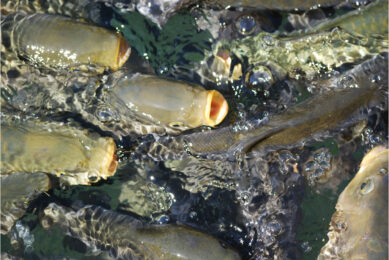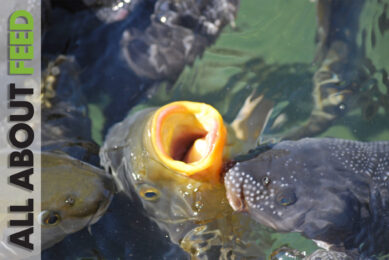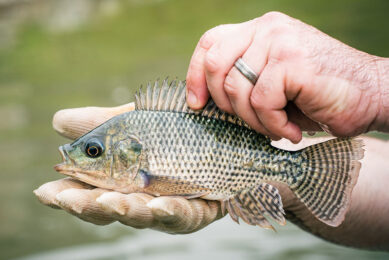Better breeding stock to revive black tiger shrimp export
Thailand’s exports of black-tiger shrimp (Penaeus Monodon) are starting to revive after stumbling for years and losing much of their market to white shrimp (Penaeus Vannamei), reports The Bangkok Post.
Black-tiger shrimp made up more than 85% of Thailand’s shrimp exports in 2004, at 200,000 tonnes, but exports plunged to 5,000 tonnes in 2008 and 2,000 tonnes in 2009 – a tiny share of the 360,000 to 380,000 tonnes estimated to have been exported last year.
"The fall in the black-tiger shrimp industry is due largely to white-spot disease detected from imported shrimp breeding stock," said Sujint Thammasart, executive vice-president of Charoen Pokphand Foods Plc.
The rapid growth and strong productivity of white shrimp, which can yield 12 to 18 tonnes per hectare, led farmers to abandon black-tiger shrimp.
Better broodstock available
Vet Sujint, who has been engaged in research and development for the aquaculture business for years, said that researchers had worked to develop a better stock of black-tiger shrimp locally.
"We have been successful in developing specific pathogen-free (SPF) black-tiger breeding stock in greenhouses," he said.
The system keeps parent breeders free from diseases and produces healthy post-larval shrimp. With bio-secure farming, these small shrimp will have strong disease-resistance properties. Good breeders can yield more than 6 tonnes of shrimp per hectare, he said.
CPF plans to export about 1,000 to 2,000 tonnes of black-tiger shrimp this year, from total exports of 50,000 tonnes of shrimp.
He is confident CPF’s move will ensure farmers raise more black-tiger shrimp. But Vet Sujint suggests farmers enter contracts with buyers – normally cold-storage operators and food processors – before farming to ensure that their output will find a market.
The average price of white shrimp (60-70 head per kg) has declined steadily over the past five years.
Raising black-tiger shrimp for export would not only balance Thai exports but also keep Thai products competitive in the world market, he said.
Source: Bangkok Post











